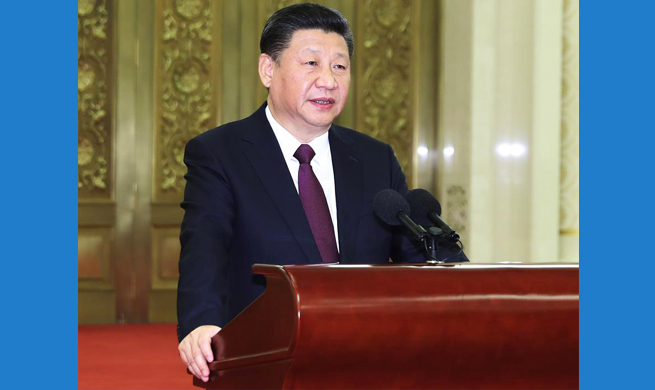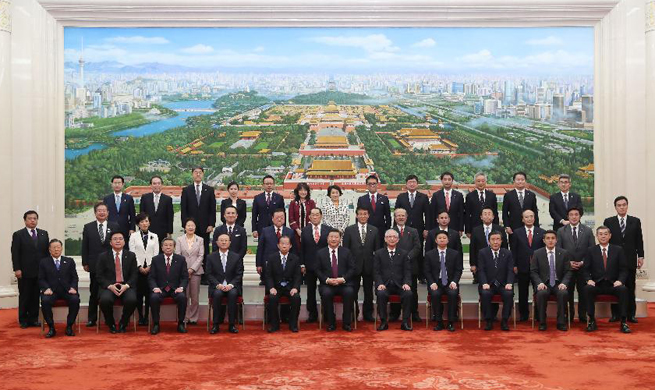ROME, Dec. 28 (Xinhua) -- Italian Prime Minister Paolo Gentiloni on Thursday said his political mandate has been fulfilled, paving the way to general elections.
Holding a traditional end-year press conference at the lower house, Gentiloni stressed his cabinet achieved "what I always considered a crucial goal of the government, which was reaching an orderly end of this legislature."
"This parliament's term has been fruitful, in my opinion," the prime minister said. "Italy has recovered from its worst (economic) crisis after World War II, and mostly thanks to Italian families and businesses."
The outgoing prime minister urged all political forces and the next parliament "to not waste such efforts, nor put the achieved results at risk. The next legislature should not lack ambition, nor (the will of) reforms."
Italian President Sergio Mattarella is expected to dissolve parliament later on Thursday, putting an official end to the five-year term that began in March 2013.
Before such a step, Mattarella will hold consultative talks with speakers of both Senate and Chamber of Deputies. Once the parliament is dissolved, Gentiloni's center-left cabinet will gather to decide the day for general elections, and would remain in charge for current affairs up to the vote.
A most likely date for the elections would be March 4, 2018, according to Ansa news agency and other major media outlets.
Opinion polls in mid December showed anti-establishment Five Star Movement (M5S) was the most popular force with about 27.5 percent of the vote, followed by the ruling center-left Democratic Party at 24.3 percent. Center-right Forza Italia (FI) party of former prime minister Silvio Berlusconi was in the third at 16.1 percent, while right-wing, anti-immigration Northern League was at 13.7 percent.
Under the new electoral law, any party gaining 40 percent of votes could govern alone. But according to the recent polls, no party was likely to gather enough votes to govern alone, and the M5S was seen at a disadvantaged position compared to the other big parties because it expressed refusal to form alliances with other parties.
As political forces from the center-left remained deeply divided, a center-right coalition of Forza Italia, the Northern League, and a minor far-right ally may have the best chances to win the majority of seats in parliament, according to local media analyses.

















